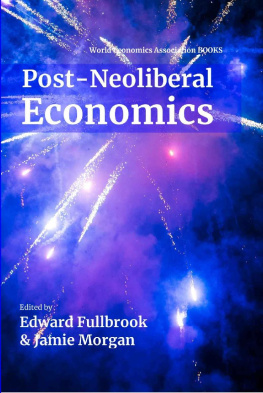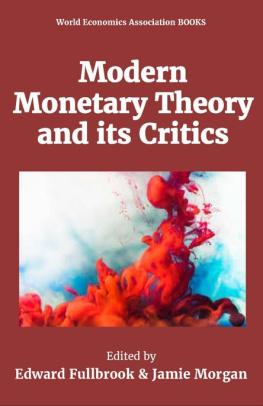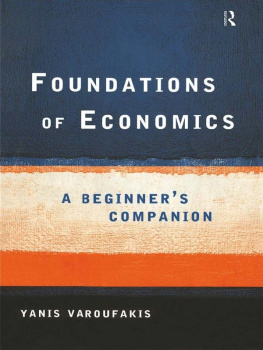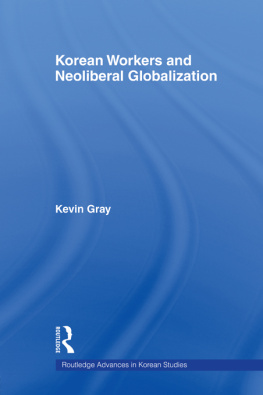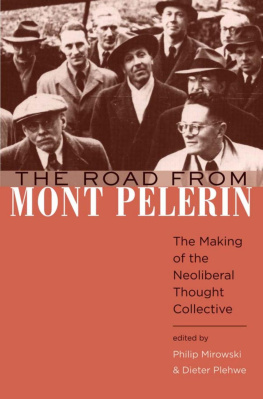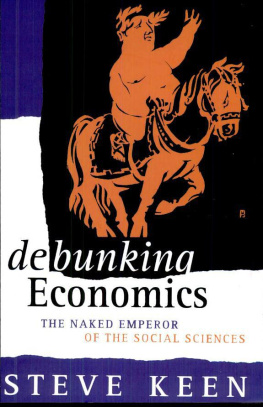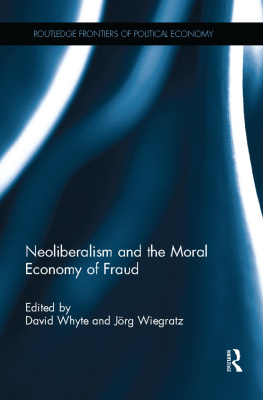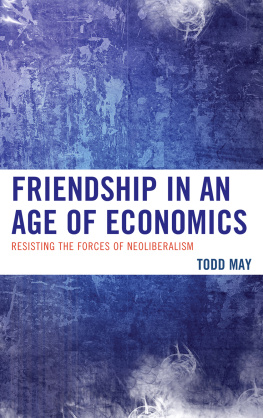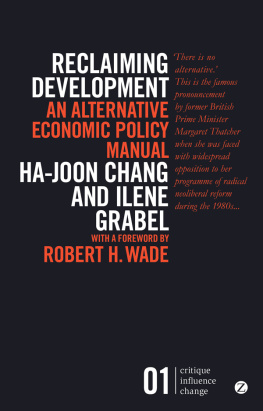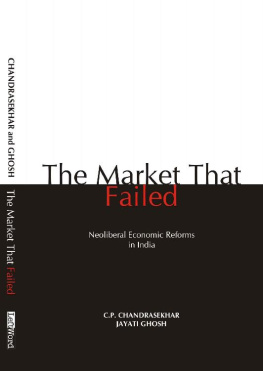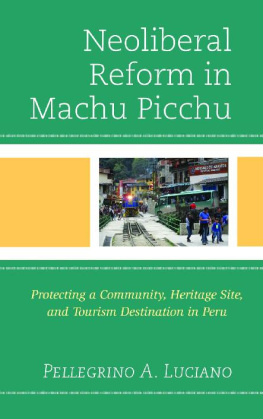Post-Neoliberal Economics
Edited by Edward Fullbrook and Jamie Morgan
World Economics Association Books
Copyright 2021 Individual authors.
All rights reserved
Previously published as
issue 96 of Real-World Economics Review in July 2021.
Published by World Economics Association, Bristol, UK
www.worldeconomicsassociation.org
The World Economics Association (WEA) was launched on May 16, 2011. Already over 13,000 economists and related scholars have joined. This phenomenal success has come about because the WEA fills a huge gap in the international community of economists the absence of a professional organization which is truly international and pluralist.
The World Economics Association seeks to increase the relevance, breadth and depth of economic thought. Its key qualities are worldwide membership and governance, and inclusiveness with respect to: (a) the variety of theoretical perspectives; (b) the range of human activities and issues which fall within the broad domain of economics; and (c) the study of the worlds diverse economies.
The Associations activities centre on the development, promotion and diffusion of economic research and knowledge and on illuminating their social character.
The WEA publishes books, three open-access journals (Economic Thought, World Social and Economic Review and Real-World Economics Review), a bi-monthly newsletter, blogs, holds global online conferences, runs a textbook commentaries project and an eBook library.
ISBN: 978-1-911156-59-8 (paperback)
978-1-911156-60-4 (eBook, Kindle)
Cover image: picjumbo.com
Cover design: Kyla Rushman
Contents
The future: Thanks for
the memories
Jamie Morgan
Introduction: what is neoliberalism and is there life after neoliberalism?
The broad remit contributors to this collection have been asked to address is the nature of post-neoliberal economics. While a post-neoliberal economics does not presuppose a post-neoliberal economy and society, since a discipline can be oppositional, the need for a post-neoliberal economics is not just a concern for scholastic failings. It is rather grounded in an urgent need to address a world gone wrong, rather than merely a discipline gone astray. Neoliberalism may be theory and the world always exceeds the bounds of any given theory, but equally neoliberalism is used as a rough and ready referent for an identifiable reality, a reality that is observably in crisis and where neoliberalism (its features as theory) has played multiple facilitating roles. Over the course of this essay I will be using the term neoliberalism as a placeholder along these rough and ready lines in so far as it can serve as a point of departure to consider possible futures. My main subject will ultimately be the need to reconcile post-neoliberal economics to climate emergency and the growing prominence of Green New Deals (GNDs). But let us begin with some comment on this neoliberalism.
The term neoliberalism has not just been quasi-descriptive, the theory has served to legitimate a concatenation of policy over several decades since the 1970s. It is, in this sense, a project. David Harvey provides perhaps the best-known account of neoliberalism:
Neoliberalism is in the first instance a theory of political economic practices that proposes that human well-being can best be advanced by liberating individual entrepreneurial freedoms and skills within an institutional framework characterized by strong private property rights, free markets and free trade. The role of the state is to create and preserve an institutional framework appropriate to such practices. The state has to guarantee, for example, the quality and integrity of money. It must also set up those military, defence and legal structures and functions required to secure private property and guarantee, by force if need be, the proper functioning of markets. Furthermore, if markets do not exist (in areas such as land, water, education, health care, social security or environmental pollution) they must be created, by state action if necessary. But beyond these tasks the state should not venture. State interventions in markets (once created) must be kept to a bare minimum because, according to the theory, the state cannot possess enough information to second-guess market signals (prices) and because powerful interest groups will inevitably distort and bias state interventions (particularly in democracies) for their own benefit [] Deregulation, privatization and withdrawal of the state from many areas of social provision has been all too common. [And] In so far as neoliberalism values market exchange as an ethic in itself, capable of acting as a guide to all human action, and substituting for all previously held beliefs, it emphasizes the significance of contractual relations in the marketplace. It holds that the social good will be maximised by maximising the reach and frequency of market transactions, and it seeks to bring all human action into the domain of markets (Harvey, 2005: 2-3).
The world, of course, has not stood still since Harvey wrote these words. The UK, for example, currently has, by inclination, one of the most right-wing governments of the last 100 years and certainly since Margaret Thatcher was Prime Minister, and yet that government has accommodated to various forms of intervention that sit awkwardly with Harveys original account including early initiatives to reimpose state control of the rail network in England and a generalised commitment to level up the economy. President Biden, meanwhile, recently pronounced trickle down economics a failure and is seeking to turn the US economy towards a Green New Deal and massive infrastructure investment and welfare reform with a leading role for the state.
Given there is a difference between theory and reality and given theorists argue that neoliberalism is a project it would, however, be misrepresentation to suggest proponents of the concept of neoliberalism have a reductive sense of its characteristics. Proponents, such as Philip Mirowski, tend to emphasise that a key feature of neoliberalism has been its variation and opportunistic malleability (Mirowski, 2013). Proponents of Marxist influenced state theory and particularly those influenced by the French regulation school, such as Bob Jessop emphasise its role as an ideational framework or political capitalism through which (as Mirowski also notes) capitalism responds to its own crises, enabling spatio-temporal fixes (a term favoured by Harvey) that perpetuate the accumulation process. Similarly, Jamie Peck argues that as the project spreads it evolves, hybridises and fails forward (Peck, 2013). This range and flexibility, of course, inevitably leads to the criticism that the term itself becomes meaningless, since it becomes a catchall concept loose in a pejorative sense rather than referring to meaningful adaptions and evolutions (a debate explored by Bruff and Tansel, 2019). But for theorists such as Harvey, Jessop or Peck the term has always been conditional, critical and used under advisement along with various other ways of addressing capitalism. Nothing in their work suggests that it becomes impossible to distinguish a neoliberal and a post-neoliberal world. In any case, it is consequences over recent decades rather than tentative signs of possible reversal in the type and degree of legitimate state activity that is most significant in getting us to where we are now.
So, where exactly are we?
To reiterate I am not suggesting the state of the world reduces merely to a theory of neoliberalism a state-led project of marketisation conjoined with a shift to increasing emphasis on individual responsibility, while favouring the interests of capital and corporations. I am suggesting that this theory has been a significant thread in producing the state of the world as we know it and in the end it is the state of the world that concerns us far more than the theory only. Is there life after neoliberalism? implies a problematic state of the world in which this project has played some significant role. Lets consider some familiar markers for that state of the world.
Next page
